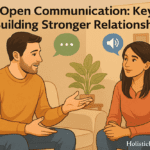Love & Relationship
21 helpful tips to forget your crush you wish you knew before
Published
5 years agoon
By
Nupur

Are you wondering how to forget your crush?
We all feel how difficult it is to love someone who does not like or love you back. Several aspects are further challenging than an unrequited crush. Perhaps the individual in concern comes to be discerning someone new, or they are just ordinary, not curious, and attracted to you in that way.
However, it is not the most agreeable emotion. Rest ensured you are not lonely. It might alleviate your suffering to know that you ultimately will get over someone you like and possibly land on someone wholly new and better to affection after. You will then bring to encounter all those pleasures and fun aspects that appear along with a fresh love curiosity.
For presently, however, you possibly expect to concentrate on how to get over your crush. It will be hard, at first, but with juncture and endurance, you will be able to heal yourself of the someone you have loved.
No course, what you will expect to modify your mindset. Here are the 21 best tips to getting over someone you like. Browse them out instantly and discover which ones might be eligible to assist you to stop crushing on someone.
Table of Contents
- 1 1. Admit that you have a crush
- 2 2. Speak it out and let it take off
- 3 3. Acknowledge your situations
- 4 4. Strive not to come back
- 5 5. Do not follow or pursue their social media accounts
- 6 6. Recognize Your Worth and Do What You Like
- 7 7. Discover whatever you can
- 8 8. Realize That This Is Short-dated
- 9 9. Bring It All Out in Your Journal
- 10 10. Join New People
- 11 11. Consult with a Therapist or Adviser
- 12 12. Do not seize aspects privately
- 13 13. Be sincere with yourself
- 14 14. Living on it is not profitable
- 15 15. Outrage is never beneficial
- 16 16. Reflections of yourself
- 17 17. Stave off from reckoning about your crush
- 18 18. Maintain your distance
- 19 19. Get yourself some moments
- 20 20. Breathe and Heal
- 21 21. Get another individual to mingle
1. Admit that you have a crush
The initial point is ever about culmination. When you feel your crush may not possess similar emotions and feelings for you as you commit to them, it will be simpler to acknowledge that you retain a crush.
It can be challenging, but you will be astonished at how much this creates a discrepancy.
2. Speak it out and let it take off
Perpetrate to a huge ole vent trial with your mama or best friend and confront all your emotions out. Speak about what you like in that someone and how much you are suffering, all the circumstances of your excellent imaginary moments, etc. Bring it all out in one chop down swoop, and then perpetrate to get over a crush who doesn’t like you.
Discussing aspects through can assist you to comprehend and further about why you sense the way you commit and similarly allows the people who incline about you to understand what is running on in your life.
3. Acknowledge your situations
Recognizing your circumstance is the next fraction of your recovery procedure. You have discerned that the situations encircling your crash retain possibly been limited than a goal, and you require to move forward.
Maybe your crush was not as congenial as you guessed or probably you discover your crush don’t like you. Either manner, indications have exemplified that you expect to overlook about your crush.
Stubbornness is the foe. You can not decline to abandon your crush and then surviving in rejection. It will affect you to difficulty further ahead.
You expect to admit your conditions if you are getting on to move ahead in your life. Ultimately, you will be pleased that your crush did not become into something further severe.
4. Strive not to come back
While discussing it out is reasonable, but do not allow the suffering to be the bare aspect you speak around. This is what psychologists name over talking, implying you share the same awful emotions and feelings furthermore, to the fact that you’re stuck with sad feelings all the moment as you endure the denial.
When that occurs, it can occasionally be reasonable to consult a partner or family member to assist you in drawing away from. Assistance barely has to be discussing: Perhaps there is a workout you generally admire or a particular spot you wish to move, and it can be recovering to share that occurrence with somebody who looks after about you.
5. Do not follow or pursue their social media accounts


Its rigid stop was thinking about your crush and searching their social media accounts all the time. We offer you our fairest suggestion: Unfollow, unfollow, unfollow.
Avoid your crush and quit pursuing their Instagram, Twitter, and Snapchat account. You might keep discerning the item of your admiration in group or class, but why bring it more challenging for yourself? So, forget your crush and focus on studies.
Cleaning the screen of your crush’s existence can do surprises. You can moreover utilize those privacy settings on Instagram and Facebook that enable you to prevent or block somebody’s update notification from your feed which keeps you notified about them.
You can also unfriend without certainly unfriending, which is a considerable alternative if you are anxious your crush will glimpse a dip in their friend list.
6. Recognize Your Worth and Do What You Like


When we get over a crush who doesn’t like us, one of our allies frequently recalls us is, “It is THEIR deficit.” Which is credible.
Because that individual is not the mere someone in the globe, nonetheless, you, are the only you. Perform something that will recall you of this.
Whatever you exceed at that brings about your sense of incredible and endow when you accomplish it.
So, If your second crush is completely capable and worthy of you, they will be fascinated by all of your skills and motivate you to be the nicest you can be.
Advantage: Being involved with all the aspects you like performing many directions not even to retain time to collect oneself on a lost virtually in love.
7. Discover whatever you can
Presently that you are around to sensation like yourself, suppose about what aspects your former crush possessed that you would like to discover in a current one.
Did they retain a considerable way of talking? Or a slaying personality? Did you like their killer smile? What did you not admire about your crush?
You maximum indeed do not require to lunge straight into a current romantic circumstance, but it is useful to conclude what you are into. And what you are not. For the following juncture, you discover yourself possessing emotions and feelings.
8. Realize That This Is Short-dated
No course, how much your soul is afflicted, realize that the emotions would not remain permanently. You will be able to move on.
Mendle says that Feelings, even very adverse ones are momentary. There will ever be times when you expect something intensely, and it only does not succeed. It is ordinary to seize a while to rebound from that.
Nevertheless, memorizing that emotion can and do stick it out, just when it appears as you will feel unhappy always, is something you can remember another time you feel depressed.
9. Bring It All Out in Your Journal
Journaling has been verified to lessen anxiety and stress, serene your sense, and assist you in pushing on from unfavorable thinking. How? Can you feel life moving through your mind?
Generously, initial, it enables you to seize a juncture and concentrate entirely on yourself, and be existing at the juncture.
With this preoccupation arrives transparency, and you are eligible to obtain some vacation from your feelings and emotions. The behave of journaling itself is restoring.
So, If you wish, you can toss out the paper after you note all your emotions and feelings. Occasionally you do not expect to save a diary, book, or note of your innermost feelings.
10. Join New People


When you realize prepared, contemplate gathering and chilling with new friends.
There is no tension to commence dating, indeed, but just settling yourself out there and existing free to new likelihoods can do marvels for restoring your soul and heart and offering you wishes that you will be eligible to formulate understandings for someone else.
11. Consult with a Therapist or Adviser
If you have discussed it out, shut off your crush on social media, and strived to change the position in your life, but almost realize clasped in the sorrow, talk with a counselor who can assist you.
12. Do not seize aspects privately
In this circumstance, it is significant not to internalize anything that you encounter. Barely because your crush has not in love with you does not imply there is anything erroneous with you.
You are, however, the exact. A wonderful person that you existed before you started up liking your crush. You did not commit anything terrible and guilty, and there is somebody out there that will pay back your emotions and beliefs on your terms.
13. Be sincere with yourself
Live upfront with yourself about your emotions and how your crush has influenced you. Whether actually or adversely. You require to glance at aspects; indeed, no course how much it harms your soul.
Onetime you discern aspects certainly with your gazes, it will come to be modest to process and significantly more straightforward to restore.
Suppose you are wondering to forget your crush who rejected you. It is right for you.
Because Nothing is terrible than rejection, refusal directs to severe outcomes. You do not need to come to be the person surviving in your imaginative world.
14. Living on it is not profitable
Staying in an unfavorable circumstance is never beneficial. You will come to be saddened and touch down yourself in a trench that you will be incapable of bringing out of it.
So, chill out with your allies, rejoice occasional sips and romp out the dark off. Your so-called crush will come to be a restrained remembrance.
15. Outrage is never beneficial


There is no necessity to be furious at your crush for not giving you attention the same way you give them. It is counter profitable for your recovery procedure.
Instead, you expect to make sure that your feelings remain strong and quiet.
It is not a reasonable justification for anything. She is even allowing it to go and move forward—no desire to perish to any unstable feelings.
16. Reflections of yourself
Time is hugely significant. It is a big moment to get to understand yourself furthermore. Moreover, with yourself, juncture appears healing. Calm down and reflect.
17. Stave off from reckoning about your crush
Your crush is not worth your juncture anymore. Please do not allow them to oversee your feelings. It would help if you ignored intuition about them at all expenses because it is counter efficient.
Attempt some new hobbies. Speak up to your colleagues and chill with them—start-up performing yoga and exercise.
18. Maintain your distance
Putting distance in between your crush and you are an incredible suggestion. While it is hard, you can strive to bring yourself slightly accessible and concentrate on further significant aspects of your life.
Keep in mind, and a human can not monitor who he/she loves. There is no usage in getting furious because your crush does not pay back your emotions and feelings.
19. Get yourself some moments
Everyone give-and-take with circumstances contrarily, and it may seize you lanky than it may take others to restore. That is alright. Put up with all the moment you require.
20. Breathe and Heal
It is a difficult task of getting over a crush. It will never is straightforward. At the exact time, it is not unthinkable, while you are hurting.
By grabbing your space and time, maintaining your distance, and living credible to yourself, you will come back to your old self.
21. Get another individual to mingle


As you know, life is short, and we can’t stick on one person who doesn’t seem interested in you. So, it’s better to find someone else who understands your feelings and emotions.
It’s hilarious that you are striving to get over your crush who might even doesn’t know about it.
In a nutshell, keeping up in intent that your crush will never provide you with that pleased finishing up, so you require to be readied to let them go. Just believe in yourself because there is somebody who will adore and understand you.
About the author


Nupur
Nupur is a graduate from Delhi University and is a passionate writer. Very fond of reading books and listening to old songs!
Nupur is a graduate from Delhi University and is a passionate writer. Very fond of reading books and listening to old songs!


You may like
Love & Relationship
Emotional Manipulation: How to Recognize, Understand, and Protect Yourself
Emotional manipulation is one of the most subtle yet damaging forms of control. Unlike open conflict, which you can see and respond to, manipulation works quietly—through guilt, pressure, and psychological tricks that make you doubt yourself.
Published
5 months agoon
October 3, 2025By
Admin

Emotional manipulation is one of the most subtle yet damaging forms of control. Unlike open conflict, which you can see and respond to, manipulation works quietly—through guilt, pressure, and psychological tricks that make you doubt yourself. Often, the manipulator hides behind affection, concern, or authority, making it harder for you to notice their true intentions.
This guide dives deep into what emotional manipulation is, how to recognize it, why it’s harmful, and most importantly, how you can protect yourself.
Table of Contents
- 1 What Is Emotional Manipulation?
- 2 Common Signs of Emotional Manipulation
- 3 Examples of Emotional Manipulation in Daily Life
- 4 Why Emotional Manipulation Is Harmful
- 5 Common Mistakes People Make While Dealing With Manipulators
- 6 How to Protect Yourself From Emotional Manipulation
- 7 When to See a Doctor or Therapist
- 8 FAQs About Emotional Manipulation
- 9 Conclusion
What Is Emotional Manipulation?


- It often involves twisting facts or using guilt, shame, or fear.
- It preys on your kindness, empathy, and sense of responsibility.
- It can happen in any relationship—romantic, professional, family, or friendships.
Example: A partner says, “If you really loved me, you’d do this for me,” making you feel guilty instead of respecting your choice.
Also Read: Is Your Boyfriend Emotionally Manipulating You? How to Spot the Signs
Common Signs of Emotional Manipulation


Guilt-Tripping
Manipulators make you feel guilty for putting your needs first. They might say things like:
“I can’t believe you’d do this after everything I’ve done for you.”
“You’re so selfish for thinking about yourself.”
Over time, this creates an unhealthy pattern where you say “yes” to things you don’t want, just to avoid guilt.
Gaslighting
One of the most damaging forms of manipulation, gaslighting makes you doubt your memory, perception, or even sanity. Example:
You recall something clearly, but they say, “That never happened, you’re imagining things.”
This causes self-doubt and makes you more dependent on the manipulator’s version of reality.
Playing the Victim
Manipulators pretend to be helpless, misunderstood, or constantly mistreated to gain sympathy. They make you feel responsible for their well-being.
Example: “I wouldn’t be this way if you didn’t upset me.”
This tactic shifts responsibility away from them and onto you.
Silent Treatment
Instead of resolving conflict, manipulators withhold affection or communication until you give in. This creates emotional anxiety and forces you to surrender just to restore peace.
Excessive Flattery
They shower you with over-the-top compliments to lower your guard or make you feel indebted. At first, it feels good, but later it becomes a tool of control.
Blame-Shifting
Whenever something goes wrong, they find a way to make it your fault. Even when they are clearly responsible, they twist the situation until you’re apologizing.
Emotional Blackmail
This is the most extreme form of manipulation. They use threats or ultimatums like:
“If you leave me, I’ll hurt myself.”
“If you don’t do this, you’ll regret it.”
This creates fear and guilt that keeps you trapped.
Examples of Emotional Manipulation in Daily Life
To understand how common manipulation is, here are real-life situations:

- At Work: A boss implies your job security depends on working extra hours without pay.
- In Relationships: A partner accuses you of “not caring enough” when you want personal space.
- Among Friends: A friend says, “After all the times I helped you, you can’t do this one thing for me?”
- In Families: Parents say, “After everything we sacrificed, you’re choosing this path?”
These examples show manipulation is not limited to one context—it can appear anywhere.
Why Emotional Manipulation Is Harmful
The effects of manipulation go far beyond the immediate discomfort. Over time, it:
- Destroys self-esteem: You start questioning your worth and abilities.
- Creates dependency: You rely on the manipulator for approval and decision-making.
- Triggers guilt and anxiety: Constant emotional pressure leads to stress and burnout.
- Prevents healthy relationships: True relationships are built on respect, not control.
- Impacts mental health: Long-term exposure can lead to depression, anxiety disorders, or trauma.
Common Mistakes People Make While Dealing With Manipulators


- Doubting their instincts: Many people sense something is wrong but dismiss it.
- Trying to over-explain themselves: Manipulators thrive on arguments—they twist your words.
- Giving in to keep peace: Temporary peace usually leads to bigger control later.
- Believing change will happen quickly: Manipulators rarely change without awareness and effort.
How to Protect Yourself From Emotional Manipulation
- Recognize the Patterns
The first defense is awareness. When you see the signs—guilt trips, gaslighting, silent treatment—you can stop blaming yourself. - Set Firm Boundaries
Decide what behaviors you will not accept and stick to them. Example: “I can’t continue this conversation if you keep yelling.” - Don’t Over-Explain
Manipulators feed on your explanations. Keep your responses short and neutral. - Stay Calm and Detached
Emotional reactions give manipulators power. Practice staying composed. - Trust Your Feelings
If interactions constantly leave you confused, guilty, or exhausted—it’s a red flag. - Limit Contact
If possible, distance yourself from toxic people who refuse to change. - Seek Support
Talking to trusted friends, mentors, or a therapist can give you clarity and strength.
When to See a Doctor or Therapist


- You feel trapped, powerless, or constantly guilty.
- You experience anxiety, depression, or sleeplessness from the stress.
- The manipulator uses threats of harm or violence.
- You’re unable to break free from the toxic cycle on your own.
Therapists can help you rebuild confidence, teach you boundary-setting, and guide you in healing from manipulation.
FAQs About Emotional Manipulation
Q1. What is the difference between persuasion and emotional manipulation?
Persuasion involves honest communication where both parties benefit, while manipulation is deceptive and benefits only the manipulator. Manipulation often uses guilt, fear, or shame to control you.
Q2. How do I know if someone is emotionally manipulating me?
If you often feel guilty, anxious, confused, or pressured into doing things against your will, you might be experiencing manipulation. Watch for tactics like gaslighting, guilt-tripping, or silent treatment.
Q3. Can emotional manipulation happen in healthy relationships?
Yes, even otherwise healthy relationships can have moments of manipulation. The difference is that in healthy bonds, both people acknowledge mistakes and work to improve, rather than repeatedly using control tactics.
Q4. How do I stop someone from manipulating me emotionally?
Set clear boundaries, stay calm, and don’t over-explain yourself. Keep your responses short and neutral, and if the person refuses to respect your limits, consider limiting contact.
Q5. Is gaslighting the same as emotional manipulation?
Gaslighting is a form of emotional manipulation, but not the only one. It specifically makes you question your memory, perception, or sanity, while manipulation includes a wide range of tactics like guilt-tripping, blame-shifting, or emotional blackmail.
Q6. Can therapy help with emotional manipulation?
Yes. Therapy can help you rebuild confidence, recognize manipulation patterns, and develop strategies to set boundaries. It’s especially helpful if you’ve been in a long-term manipulative relationship.
Q7. Can manipulators change their behavior?
Some can, if they recognize their patterns and are willing to work on them. However, many manipulators deny their behavior. You cannot change them—it requires self-awareness and effort on their part.
Conclusion
Emotional manipulation is not always easy to spot, but its impact is powerful. It chips away at your confidence, creates emotional dependency, and prevents healthy relationships. The good news is—you can break free. By recognizing the tactics, setting firm boundaries, and seeking support, you reclaim control over your emotions and your life.
Remember: Manipulation is about power, not love. True relationships respect boundaries, honesty, and mutual care.
About the author
Love & Relationship
Gen Z Relationship Terms: A Guide to Understanding Modern Love
Dating in the digital age is more than just swiping left or right—it’s a whole new language. The landscape of relationships is changing, especially for Gen Z (born roughly between 1997 and 2012).
Published
6 months agoon
August 19, 2025By
Admin

Dating in the digital age is more than just swiping left or right—it’s a whole new language. The landscape of relationships is changing, especially for Gen Z (born roughly between 1997 and 2012). From ghosting to cuffing, Gen Z has redefined how relationships are started, maintained, and ended.
Unlike previous generations, Gen Z openly discusses emotions, identity, and mental health—often using slang and coined terms that may sound confusing to anyone outside their circle. Whether you’re a millennial trying to understand a younger sibling, a parent wanting to stay in the loop, or part of Gen Z yourself, this guide breaks down 25+ Gen Z relationship terms with examples, meanings, and insights. This article is your go-to resource for decoding modern love, dating culture, and digital relationship dynamics.
Table of Contents
- 1 Why Learn Gen Z Dating Slang?
- 2 Gen Z Relationship Terms Cheat Sheet
- 3 Top Gen Z Relationship Terms You Need to Know
- 3.1 Situationship
- 3.2 Soft Launch
- 3.3 Hard Launch
- 3.4 Ghosting
- 3.5 Breadcrumbing
- 3.6 Benching
- 3.7 Love Bombing
- 3.8 Gaslighting
- 3.9 Cushioning
- 3.10 Orbiting
- 3.11 Rizz
- 3.12 Clingy
- 3.13 Dry Texting
- 3.14 Green Flag
- 3.15 Red Flag
- 3.16 Delulu (Delusional)
- 3.17 Thirst Trap
- 3.18 Ship / Shipping
- 3.19 Main Character Energy
- 3.20 Cuffing Season
- 3.21 Love Language
- 3.22 Emotional Availability
- 3.23 Vibe Check
- 3.24 Slow Fade
- 3.25 Dry Spell
- 3.26 Mutuals
- 4 How Social Media Shapes Gen Z Dating Culture
- 5 Are These Terms Only for Gen Z?
- 6 FAQ: Gen Z Relationship Terms
Why Learn Gen Z Dating Slang?


-
Understanding your own or others’ dating behavior
-
Communicating more effectively in relationships
-
Avoiding confusion or misinterpretation in digital interactions
-
Staying relevant in conversations about modern love
Gen Z Relationship Terms Cheat Sheet
| Term | Meaning | Example |
|---|---|---|
| Ghosting | Cutting off contact without explanation | “He ghosted me after 3 dates.” |
| Love Bombing | Excessive affection to manipulate | “She love bombed me with gifts, then vanished.” |
| Cuffing Season | Winter dating for companionship | “Everyone’s cuffed up this December.” |
| Benching | Keeping someone as a backup | “He benched me till his ex came back.” |
| Situationship | Undefined romantic connection | “It’s not official—we’re in a situationship.” |
Top Gen Z Relationship Terms You Need to Know


Situationship
Meaning: A situationship is more than a friendship but less than a committed relationship. There’s emotional and sometimes physical intimacy, but no labels. It’s a placeholder for “we’re something, but I don’t know what.”
Example: “We’re not dating, but we hang out all the time and text every day—it’s kind of a situationship.”
Also Read: What is Situationship ? A Guide to Modern Relationships in 2025
Soft Launch
Meaning: Subtly introducing a new partner on social media without revealing their full identity.
Example: Posting a photo of dinner for two or just your partner’s hand holding yours.
Hard Launch
Meaning: Officially introducing a partner on social media, often with a couple photo or relationship announcement.
Example: Uploading a selfie together on Instagram with the caption, “He’s my everything.”
Ghosting
Meaning: One of the most common dating terms. It means suddenly cutting off all communication without any explanation.
Example: “He stopped replying after our third date. Total ghost.”
Breadcrumbing
Meaning: Giving someone minimal attention (like a like, DM, or occasional text) to keep them interested without real commitment.
Example: “She keeps replying to my stories but never agrees to meet. Classic breadcrumbing.”
Benching
Meaning: Keeping someone as a backup option while dating others.
Example: “He texts me just enough to keep me interested, but he’s clearly seeing someone else too.”
Also Read: Benching in Relationships: What It Means, How to Spot It, and What to Do About It
Love Bombing


Example: “He said ‘I love you’ in the first week and sent flowers daily. Red flag: love bombing.”
Gaslighting
Meaning: Manipulating someone into questioning their reality or emotions.
Example: “She kept saying I was overreacting even though I had proof. Total gaslighting.”
Cushioning
Meaning: Flirting with potential backup partners in case the current relationship ends.
Example: “He was texting someone else just in case we didn’t work out—cushioning at its finest.”
Orbiting
Meaning: When someone ghosts you but still watches your social media stories or likes your posts.
Example: “He disappeared but still views every story I post. That’s orbiting.”
Rizz
Meaning: Short for charisma, it means someone’s charm or flirting skills.
Example: “He’s got mad rizz—he can make anyone laugh and blush.”
Clingy
Meaning: Overly dependent or needy in a relationship.
Example: “He calls every hour and gets upset if I don’t reply—he’s too clingy.”
Dry Texting
Meaning: Giving short, unenthusiastic replies in chat.
Example: “Me: ‘How was your day?’ Him: ‘Good.’ Total dry texter.”
Green Flag


Example: “He listens without interrupting and respects my space. Major green flags!”
Red Flag
Meaning: Warning signs or problematic behavior in a partner.
Example: “He won’t let me have guy friends. That’s a red flag.”
Delulu (Delusional)
Meaning: Holding on to unrealistic expectations about someone liking you back.
Example: “He smiled once and now she thinks he’s into her—total delulu moment.”
Thirst Trap
Meaning: A provocative photo or video shared online to get attention or validation.
Example: “That gym selfie wasn’t about fitness—it was a thirst trap.”
Ship / Shipping
Meaning: Wanting two people (real or fictional) to be in a relationship.
Example: “I totally ship those two—they have amazing chemistry.”
Main Character Energy
Meaning: Living confidently and prioritizing your own story and emotional well-being.
Example: “She dumped him and booked a solo trip. Main character energy.”
Cuffing Season
Meaning: The time during colder months when people look to get into a serious relationship.
Example: “It’s October, and suddenly everyone’s boo’d up—it’s cuffing season.”
Love Language


Example: “My love language is quality time, so just sitting together means a lot.”
Emotional Availability
Meaning: The willingness and capacity to discuss feelings and form deep connections.
Example: “He talks openly about his emotions—super emotionally available.”
Vibe Check
Meaning: Assessing someone’s energy or compatibility before getting emotionally involved.
Example: “Before I get serious, I need to do a proper vibe check.”
Slow Fade
Meaning: Gradually pulling away from someone rather than ending things directly.
Example: “He used to text daily, then every other day, and now nothing. It’s a slow fade.”
Dry Spell
Meaning: A period of no romantic or sexual activity.
Example: “Haven’t been on a date in 8 months—I’m in a dry spell.”
Mutuals
Meaning: People who follow each other on social media. Sometimes refers to shared friends online.
Example: “We started chatting after realizing we were mutuals on Instagram.”
How Social Media Shapes Gen Z Dating Culture


-
How relationships start and develop
-
What people expect in modern dating
-
How love is publicly expressed or hidden
-
How breakups happen and how people move on
Apps like TikTok have even made relationship content a genre—where creators post skits, reactions, and confessions around dating experiences.
Are These Terms Only for Gen Z?
No. While Gen Z coined or popularized these dating terms, millennials and even Gen X are adopting many of them. These expressions are now part of mainstream dating culture, especially online.
Understanding this vocabulary helps decode modern relationships—no matter your age.
FAQ: Gen Z Relationship Terms
Q1: What is the most popular Gen Z relationship term in 2025?
A: “Situationship” continues to trend, reflecting Gen Z’s preference for emotional connection without strict labels.
Q2: Is love bombing a red flag?
A: Yes, it’s considered manipulative—often leading to emotional withdrawal after overwhelming attention.
Q3: How can I keep up with these terms?
A: Follow relationship coaches, Gen Z creators, and psychology-based dating accounts on social media.
Final Thoughts
Understanding Gen Z relationship terms helps decode the shifting dynamics of love in the digital age. Whether you’re navigating a situationship or trying to spot a red flag, knowing the meaning behind these phrases empowers you to build healthier relationships—both online and offline. As dating norms evolve, staying informed allows you to approach love with clarity, intention, and confidence.
If you’re exploring couple wellness or seeking relationship guidance, recognizing these terms isn’t just trendy—it’s practical. Use this guide to communicate better, protect your energy, and grow emotionally intelligent relationships in today’s fast-paced world.
About the author
Love & Relationship
Benching in Relationships: What It Means, How to Spot It, and What to Do About It
What you’re experiencing might be benching in relationships—a growing phenomenon in the modern dating scene where one person keeps another “on hold,” engaging just enough to maintain interest but without any real commitment.
Published
7 months agoon
August 18, 2025By
Admin

Have you ever felt like someone you’re dating keeps you around, but never quite moves the relationship forward? You’re not alone. What you’re experiencing might be benching in relationships—a growing phenomenon in the modern dating scene where one person keeps another “on hold,” engaging just enough to maintain interest but without any real commitment.
With the surge in online dating—over 30% of U.S. adults now use apps—new dating trends have emerged, and not all are healthy. Benching in dating is one such behavior, leaving many confused, emotionally drained, and uncertain of where they stand.
This article will walk you through exactly what is benching in dating, how to spot the signs, understand the emotional impact, and most importantly—what steps to take if you’re being benched. Whether you’re in Uttarakhand or anywhere else, navigating relationships in 2025 means staying informed and protecting your emotional wellbeing.
Table of Contents
What Is Benching in Relationships?


Benching is when someone maintains contact with a romantic interest without progressing the relationship. Think of it like in sports—where a player sits on the bench, not in the game, but ready to be called upon if needed. In dating, the “bencher” gives just enough attention to keep the other person engaged while actively pursuing other options.
The benching relationship meaning is rooted in emotional convenience. With the popularity of dating apps, it’s easier than ever to juggle multiple conversations and keep potential partners “on standby.” Instead of committing or cutting ties, benchers stay in the gray zone, leaving the other person emotionally stuck.
It differs from ghosting, which is sudden and complete withdrawal. Benching involves sporadic check-ins, flirty messages, and vague promises. It feels like progress is just around the corner, but it never arrives. And that emotional limbo can be damaging if not recognized early.
Signs of Benching in a Relationship


???? Inconsistent Communication
They text every few days, often at random hours, and rarely follow up. Conversations feel superficial, and they may go dark for days only to pop back with a casual “Hey.”
Also Read: Open Communication: Key to Building Stronger Relationships
❌ Cancelled Plans and Excuses
They often cancel at the last minute or delay making concrete plans. Their excuses seem valid—but after a while, the pattern becomes hard to ignore.
????♂️ You’re Always “Just a Friend”
Despite emotional intimacy or even physical connection, you’re introduced as a “friend.” They avoid labels or any public acknowledgment of your role in their life.
???? Digital-Only Presence
They engage with your social media—liking stories, reacting to posts—but avoid deeper, meaningful interaction. There’s plenty of digital breadcrumbs but no real-life investment.
???? No Progress
Whether it’s been weeks or months, the relationship status hasn’t changed. They sidestep questions like “Where is this going?” or make vague promises they don’t follow through on.
Common benching in relationships examples include someone who texts you “Good night ????” every night but never makes an effort to meet, or someone who comes back whenever their other options dry up.
Understanding these signs helps you decide whether this is a temporary phase—or a pattern that needs addressing.
Emotional and Mental Health Effects of Benching


???? Anxiety and Confusion
Being benched often creates constant overthinking. You might ask yourself, “Did I say something wrong?” or “Are they still interested?” This emotional ambiguity leads to stress and mental fatigue.
???? Intermittent Reinforcement
Psychologically, benching mimics intermittent reinforcement—the same principle used in addictive behavior cycles. The occasional positive interaction (a sweet text, a compliment) creates hope, while the long silences amplify the craving for attention.
???? Lowered Self-Worth
The longer you’re benched, the more likely you are to internalize the behavior as a reflection of your own worth. This can lead to self-doubt, emotional dependency, and even depression in severe cases.
???? Long-Term Relationship Damage
When people repeatedly experience benching, it can cause long-term trust issues. Entering new relationships may feel unsafe, as past benching experiences make you wary of connection.
Also Read: Understanding the Root Causes of Trust Issues in Relationships
So, how to deal with benching?
It starts with awareness. Once you recognize the pattern, you can take steps to reclaim your peace—whether that’s confronting the person or stepping away entirely. Talking to trusted friends, journaling your thoughts, or even seeking a therapist can help unpack these emotions.
How to Address and Overcome Benching


✍️ Step 1: Define What You Want
Before confronting the other person, get clear on your own needs. Are you looking for commitment, clarity, or closure? Knowing your boundaries sets the stage for productive conversation.
???? Step 2: Communicate Directly
Wondering how to confront benching in a relationship? Use calm, honest language. For example:
“I’ve noticed our connection feels one-sided. I’m looking for something with more clarity and commitment. Can we talk about where we stand?”
Avoid blaming or assuming intentions. Focus on how the situation impacts you emotionally.
???? Step 3: Set Boundaries
If benching continues, limit your availability. Don’t respond instantly. Prioritize your own time and emotional wellbeing. Boundaries help shift power back to you.
❓ Step 4: Understand the Difference: Benching vs Ghosting
While both behaviors are damaging, benching vs ghosting in dating boils down to this:
-
Ghosting: Disappearing completely without explanation.
-
Benching: Keeping you around with inconsistent contact.
Knowing the difference can guide your reaction. Ghosting may warrant a full disconnect. Benching? A conversation might still be possible—but should be time-bound.
???? Step 5: Reflect and Move On
If the person can’t commit to clarity or continues their passive behavior, it’s time to go. Consider journaling your emotions. Write a list of your relationship values. This self-work can offer surprising clarity and help rebuild your emotional strength.
Knowing how to stop benching in relationships empowers you to take control of your dating life, rather than wait for someone else to decide your worth.
Moving Forward: Building Healthier Relationships


Start by seeking relationships based on mutual respect and clarity. Instead of being impressed by attention alone, look for:
-
Consistency over intensity
-
Follow-through over big words
-
Actions that match intentions
If you’re recovering from being benched, focus on self-care. Practice mindfulness, pick up a new hobby, or reconnect with people who energize you.
Remember, the benching relationship meaning isn’t about you—it’s about the other person’s avoidance of emotional responsibility. The right relationship won’t leave you questioning your place.
Conclusion
Benching in relationships can be confusing, frustrating, and emotionally draining—but it’s not something you have to endure. By learning the signs of benching in a relationship, understanding its mental health impact, and taking practical steps toward clarity, you reclaim your power in dating.
Whether it’s through honest conversations, firm boundaries, or moving on entirely, the tools are in your hands. You deserve consistency, respect, and emotional safety.
Ready to move forward? Share your benching story in the comments below, explore more relationship insights on our blog, and take the first step toward building meaningful, modern connections.










